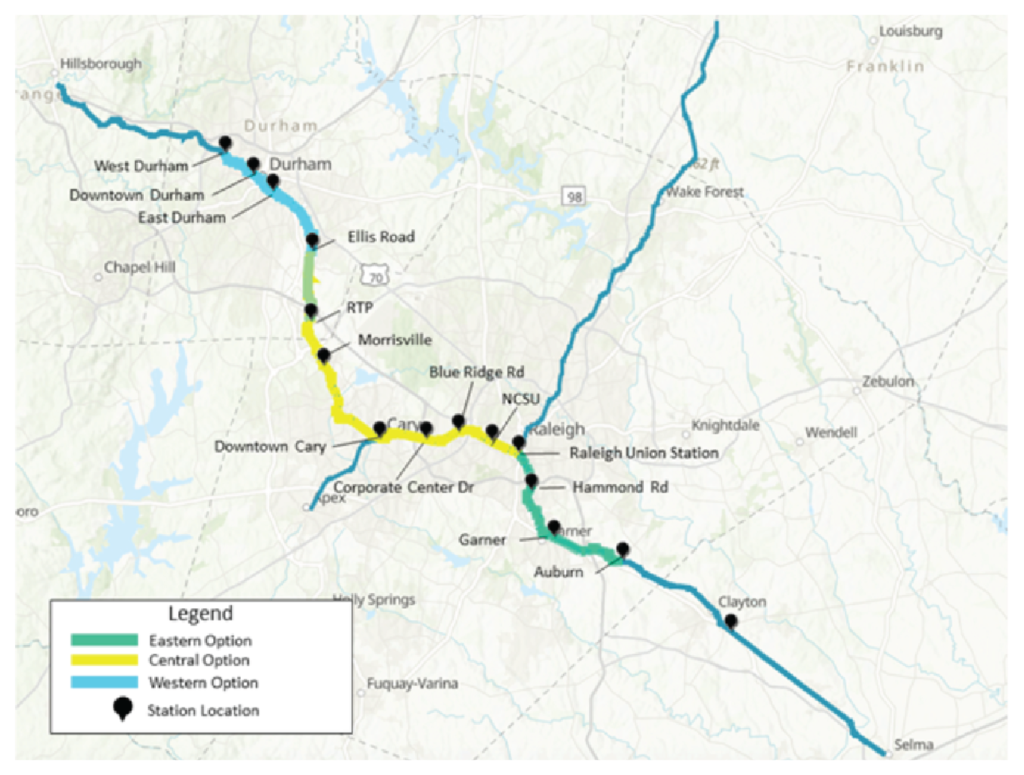Commuter Rail Feasibility Report Survey Results
Triangle-area business leaders and residents overwhelmingly support the idea of bringing a proposed commuter rail project to the region, according to findings of a survey that GoTriangle conducted in early 2023.
The survey, from Jan. 5 to Feb. 19, invited the public to respond to the findings of the Greater Triangle Commuter Rail Feasibility Report, a two-year study conducted on behalf of Durham and Wake counties. The study explored the possibility of establishing passenger rail service with up to 15 stops along a 40-mile stretch of the existing railroad corridor that runs through the Triangle region.
Due to the high cost and technical challenges associated with delivering the full project at once, the two-year study considered segments for staged implementation in the eastern, central and western portions of the corridor. In the survey, the public was asked whether they supported implementing regional passenger rail service, and if so, whether the eastern (Auburn Station in Garner to Raleigh Union Station) or central segment (Raleigh Union Station to the Ellis Road Station) should be implemented first.
- Eastern portion Implementing service from the Auburn Station in Garner to Raleigh Union Station.
- Central portion Implementing service from Raleigh Union Station to the Ellis Road Station.
- Western portion Implementing service from the RTP Station to the West Durham Station.

Considerable challenges associated with construction – including higher cost and a longer implementation time frame – led to the western segment (RTP Station to the West Durham Station) not being considered for the first phase of implementation.
Key takeaways from the survey results
What's Next?
The survey was conducted to inform local leaders on next steps. In the coming months, local leaders will decide whether and how to move forward with the project. The Capital Area Metropolitan Planning Organization and the Durham Chapel Hill Carrboro Metropolitan Planning Organization have established subcommittees to work with GoTriangle to support the decision-making process — in particular, to identify the initial implementation phase and specify how the cost will be shared between Wake County and Durham County in terms of transit tax dollars expended.
As the tax district administrator for Durham, Wake and Orange counties, GoTriangle oversees the administration of funds in the county transit plans and works with county partners to implement the region’s transit priorities.
If a decision is made to move forward, GoTriangle will work with the metropolitan planning organizations and counties to complete the procedural requirements for amending the transit plans and annual budgets to include the appropriate funding allocations to support the next steps.
How can you learn more?
- View the presentation to learn more detailed information about the project, feasibility report and options.
- Review the full feasibility report
- Review the GTCR Appendices
- Review the Survey Results